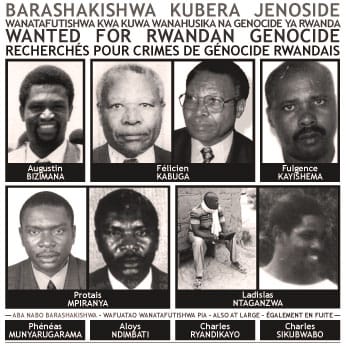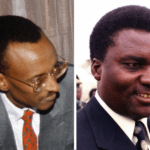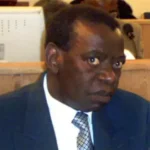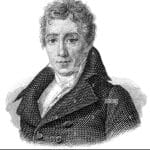Imagine a figure whose words could incite a nation to commit unimaginable acts. That man was Mathieu Ngirumpatse. As the leader of a powerful political party, his hateful rhetoric laid the groundwork for one of history’s darkest chapters: the Rwandan Genocide.
Fanning the Flames of Genocide
The Rwandan Genocide, a horrifying period in 1994, saw the slaughter of an estimated 800,000 people. This unimaginable violence stemmed from deeply ingrained animosity between the Hutu and Tutsi communities. While numerous factors contributed to the genocide, Mathieu Ngirumpatse played a chilling role in amplifying the hatred.
Ngirumpatse, President of the National Republican Movement for Democracy and Development (MRND), held immense power in Rwanda. He exploited this platform to spread fear and suspicion of the Tutsi people. Through carefully crafted propaganda and impassioned speeches, he painted a dangerous narrative of Tutsis as enemies of the state, jeopardizing Rwanda’s well-being.
Disturbingly, Ngirumpatse’s words went beyond mere criticism. He openly called for the elimination of Tutsis, urging Hutu followers to “finish the job.” This rhetoric, resonating with existing prejudices, ignited a firestorm of violence that engulfed the nation.
Ngirumpatse’s actions were not confined to words. He played a crucial role in arming and training the Interahamwe, a dangerous Hutu militia. This group, radicalized and equipped for violence, became instrumental in the genocide, carrying out a significant number of killings.
Justice and Accountability
In the genocide’s aftermath, the world grappled with the sheer scale of the tragedy. Determined to see justice served, the international community established the International Criminal Tribunal for Rwanda (ICTR).
Ngirumpatse, alongside other key figures, was brought before the ICTR. He faced charges for genocide, directly inciting genocide, and crimes against humanity. After a lengthy trial, he was found guilty in 2011 and sentenced to life in prison.
Ngirumpatse’s trial and conviction serve as a stark reminder of the importance of holding perpetrators of genocide accountable. His legacy stands as a chilling lesson about the destructive power of hate speech and the urgent need to cultivate understanding and tolerance within and between communities.
By examining Ngirumpatse’s actions, we can glean valuable insights into the factors that contribute to genocide. Recognizing the warning signs – dangerous rhetoric, the scapegoating of a specific group, and the arming of militias – may help us identify and potentially prevent similar tragedies from occurring. The Rwandan Genocide remains a heartbreaking reminder of what transpires when hatred and indifference are allowed to fester.
Who Was the Prime Minister of Rwanda During the Genocide?
Agathe Uwilingiyimana, a moderate Hutu, served as Rwanda’s Prime Minister in the terrifying days leading up to the 1994 genocide. She represented a beacon of hope in a nation teetering on the brink of chaos, advocating for peace and a power-sharing government. Sadly, her commitment to unity made her a target of extremists within her own government.
On April 7, 1994, just one day after President Juvénal Habyarimana’s assassination, Uwilingiyimana and her husband were brutally murdered. Their deaths marked a grim foreshadowing of the horrors to come, effectively igniting the genocide that would claim hundreds of thousands of lives.
Uwilingiyimana’s assassination proved a turning point, emboldening extremists within the government and military. They seized control, unleashing a systematic and brutal campaign against Tutsi civilians and any Hutus who dared oppose them. The genocide, fueled by years of ethnic tensions and propaganda, became a horrific testament to the devastating power of unchecked hatred.
Agathe Uwilingiyimana’s legacy is complex and tragic. She is remembered as a symbol of peace, her life tragically cut short by the very forces she sought to quell. Her story is a stark reminder of the human cost of prejudice and the importance of championing tolerance and understanding, even when confronted with overwhelming adversity.
Who Was the President of Rwanda When the Genocide Happened?
Juvénal Habyarimana was the President of Rwanda during the 1994 genocide. However, it’s crucial to understand that the situation was complex and did not materialize overnight. Habyarimana’s presidency was marked by escalating tensions between Rwanda’s two main groups, the Hutu and the Tutsi. Instead of alleviating these tensions, Habyarimana exacerbated them by promoting “Hutu Power” – an ideology that asserted the superiority of Hutus over Tutsis. This further strained the relationship between the two groups.
On April 6, 1994, Habyarimana’s plane was shot down, killing him instantly. While the perpetrators remain unidentified to this day, this event proved catastrophic for Rwanda. Hutu extremists seized upon the tragedy as a pretext to launch a meticulously planned campaign of violence against Tutsis, marking the beginning of the genocide.
The extent to which Habyarimana was aware of or directly supported these plans remains a subject of debate among historians. However, it’s clear that the hateful ideas his government promoted created a climate where such atrocities became possible.
The world watched in horror as the genocide unfolded. Many experts believe that Habyarimana’s actions, particularly his promotion of “Hutu Power,” played a significant role in the genocide. While he died before facing trial, an international court later accused him of being responsible for crimes against humanity, including genocide.
Even though we cannot change the past, learning about leaders like Habyarimana underscores the potential consequences of prejudice and hatred. It also highlights the responsibility of leaders to foster peace and understanding between different groups within their countries.
Who Is the Doctor in the Rwandan Genocide?
The name Dr. Sosthene Munyemana sends chills down the spines of many. Once a respected gynecologist, his story is a chilling example of how profoundly hate can twist even those sworn to heal. Instead of utilizing his medical expertise to save lives, Munyemana leveraged his position to facilitate the murder of innocent people.
He used his authority to identify, hunt down, and kill Tutsis – the very people he had pledged to help. This was not a case of being swept away by chaos; it was a calculated betrayal of everything a doctor should represent.
His trial in France in 2023, where he was sentenced to 24 years in prison, marked a pivotal moment. It demonstrated to the world that even those who try to hide behind respected professions will be held accountable for their crimes against humanity.
The Rwandan genocide serves as a stark warning of what can transpire when hatred and intolerance are allowed to run rampant. Munyemana’s actions remind us that evil can lurk even in the most unexpected of places.
Who Started the Genocide in Hotel Rwanda?
While the movie Hotel Rwanda showcases the bravery of ordinary people navigating unimaginable circumstances, it doesn’t delve into the complex political landscape that fueled the violence.
One of the key figures responsible for inciting the genocide was Mathieu Ngirumpatse, a prominent politician within Rwanda’s ruling party, the MRND. Ngirumpatse used his position to spread dangerous anti-Tutsi propaganda. He utilized his platform to disseminate lies and fear, with devastating consequences.
Ngirumpatse’s actions extended far beyond incendiary rhetoric. He played a direct role in organizing and arming the Interahamwe, the brutal Hutu militia infamous for its role in the killings. His actions directly contributed to the deaths of hundreds of thousands of Tutsis.
Ngirumpatse’s story, like that of Munyemana’s, underscores the very real dangers of hate speech, especially when amplified by those in positions of power. It underscores the need for vigilance against prejudice and the importance of promoting understanding and tolerance, especially during times of conflict.
Learn more about:
- The historical African capital where Dubois was buried.
- The hidden story behind the Ho Chi Minh Trail and beach access.
- Mathieu Ngirumpatse’s role in the Rwandan genocide.
- Crypto Quotes’ Red Flags: Avoid Costly Mistakes - June 30, 2025
- Unlock Inspirational Crypto Quotes: Future Predictions - June 30, 2025
- Famous Bitcoin Quotes: A Deep Dive into Crypto’s History - June 30, 2025
















